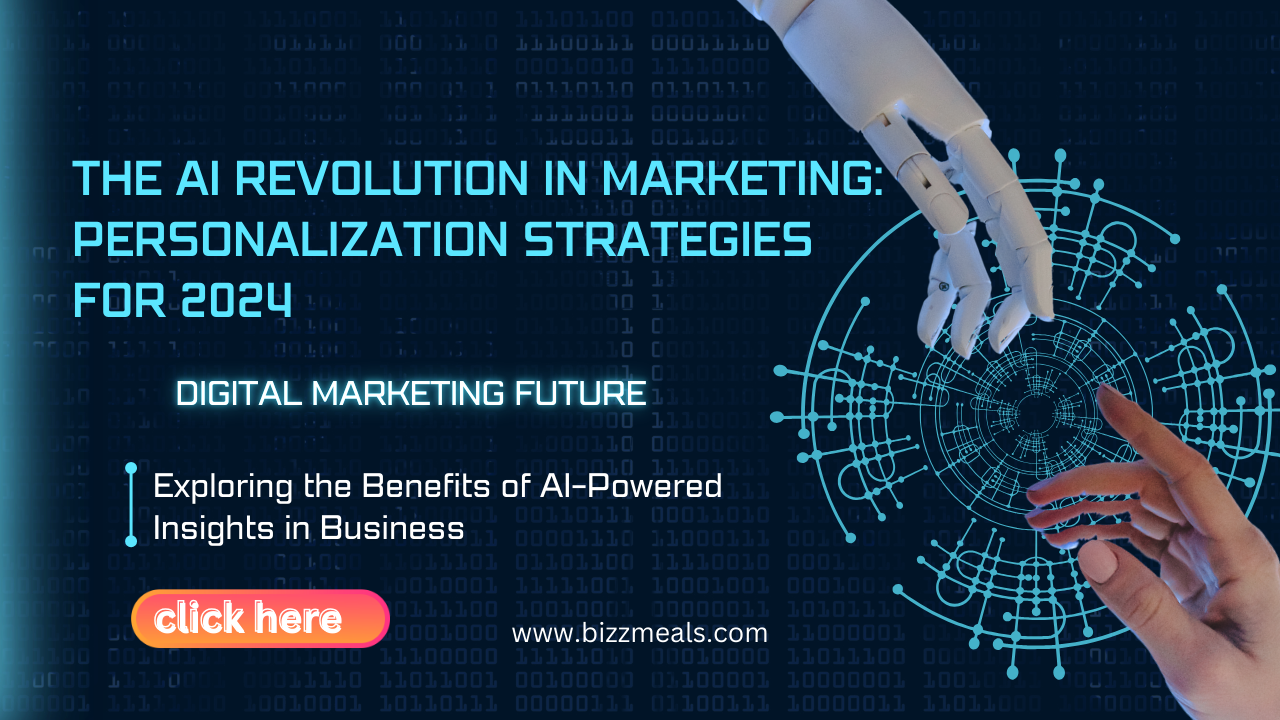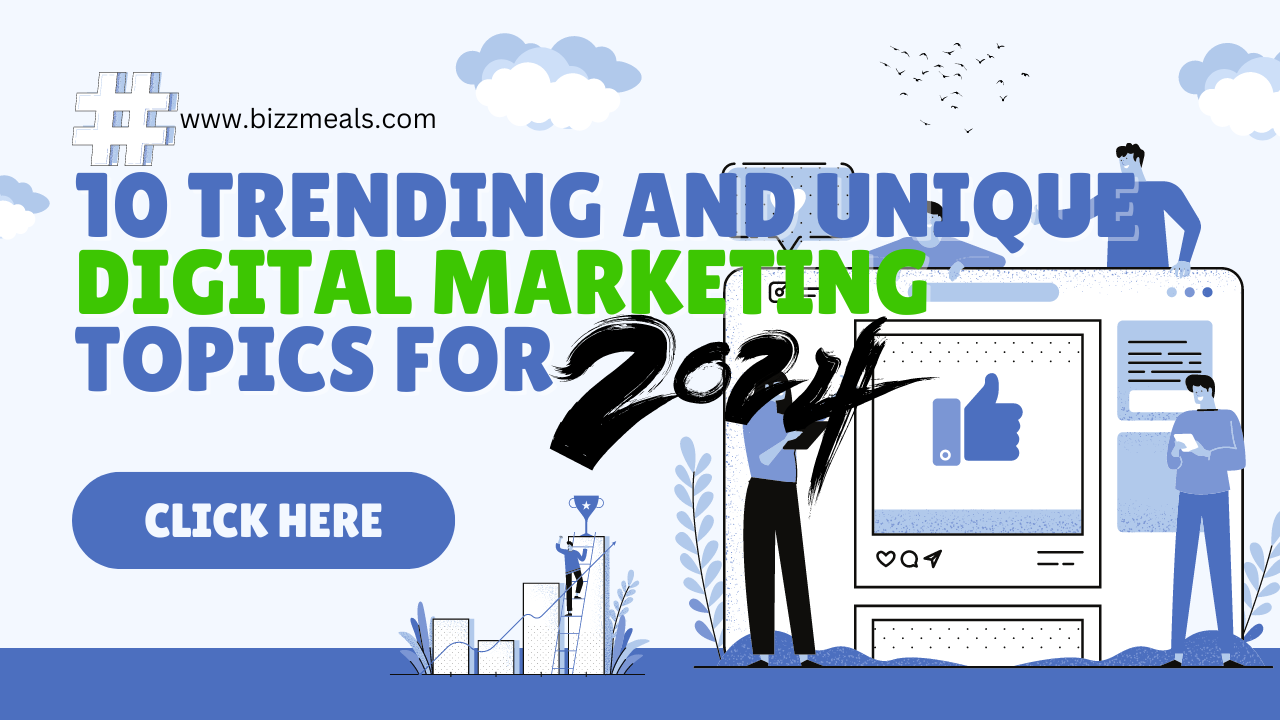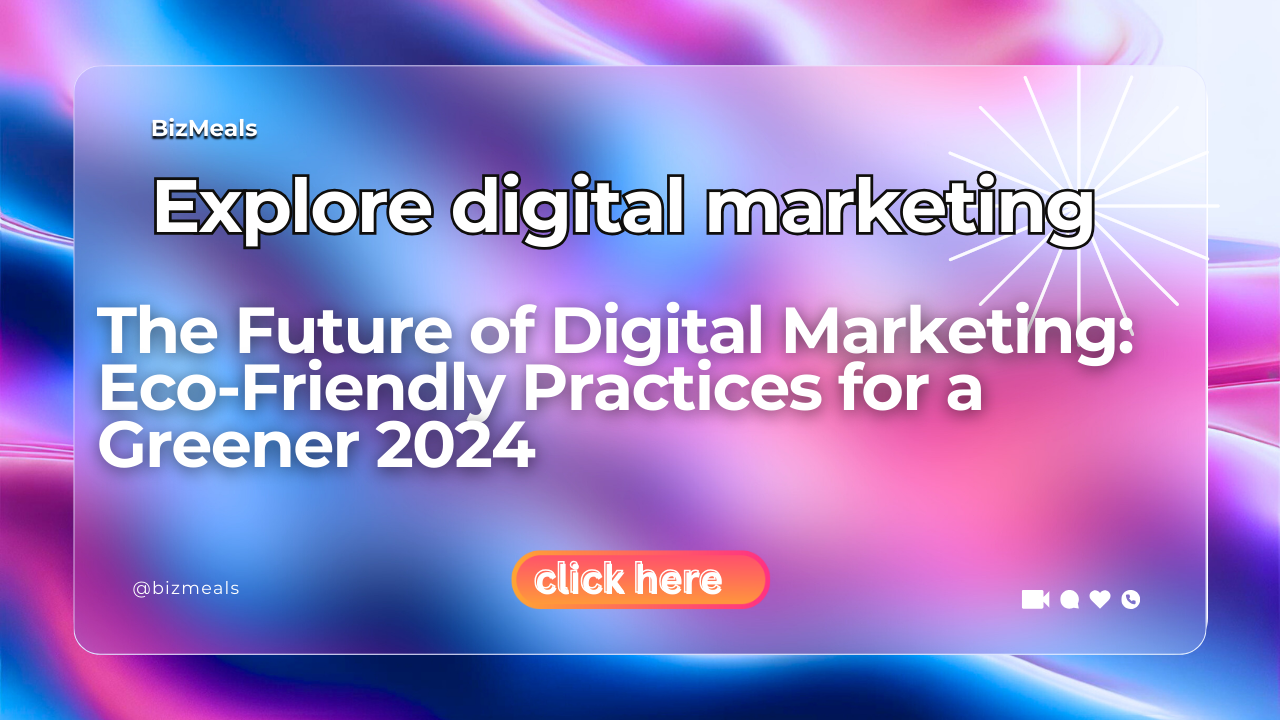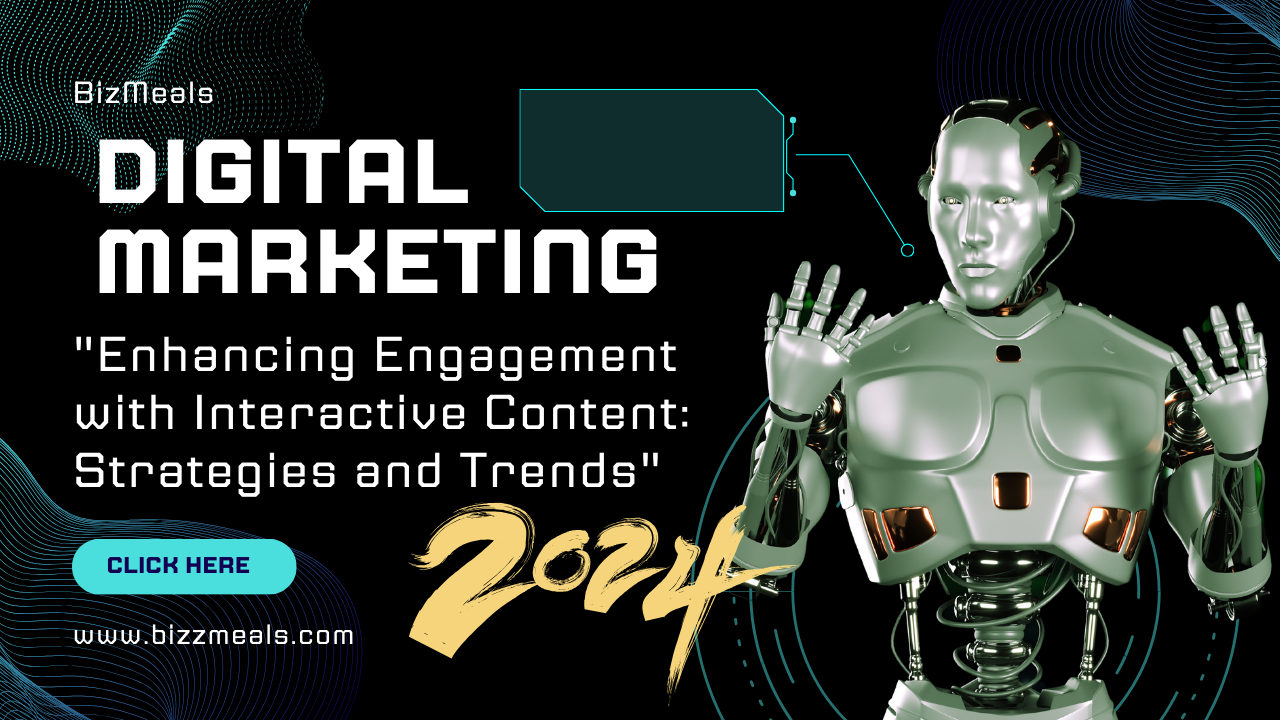Table of Contents
- Introduction
- The Evolution of Personalization in Marketing
- Understanding AI-Powered Personalization
- Key AI Algorithms Driving Personalization
- Machine Learning
- Natural Language Processing
- Predictive Analytics
- Benefits of AI-Powered Personalization
- Enhanced Customer Experience
- Improved Engagement Rates
- Higher Conversion Rates
- Real-World Applications and Case Studies
- E-commerce Personalization
- Content Personalization
- Email Marketing Personalization
- Challenges and Considerations
- Data Privacy Concerns
- Implementation Complexity
- Future Trends in AI-Powered Personalization
- Integration with Emerging Technologies
- Increased Use of Real-Time Data
- Conclusion: The Future of Personalized Marketing
- FAQ Section
Introduction
In 2024, the marketing landscape continues to evolve rapidly, with AI-powered personalization taking center stage. As consumers demand more tailored experiences, businesses are increasingly turning to artificial intelligence (AI) to meet these expectations. AI algorithms have the power to analyze vast amounts of data and create hyper-personalized customer experiences, leading to higher engagement and conversion rates. Telugu Bloggers Eenadu
This article delves into the intricacies of AI-powered personalization, exploring the various algorithms, benefits, real-world applications, and future trends. With a positive outlook, we will also discuss the challenges and considerations that marketers must keep in mind while leveraging AI for personalization. Telugu Digital Marketers Community on Facebook
The Evolution of Personalization in Marketing
Personalization in marketing is not a new concept. Traditional methods involved segmenting customers based on demographic data and crafting messages accordingly. However, with the advent of digital technologies and big data, the scope of personalization has expanded significantly. Moz Blog
In the early 2000s, marketers began using data analytics to understand customer behavior and preferences better. This shift laid the groundwork for more sophisticated personalization techniques. Fast forward to 2024, AI has revolutionized personalization by enabling real-time, dynamic customization of marketing messages and experiences. Social Samosa
Understanding AI-Powered Personalization
AI-powered personalization involves using AI technologies to tailor marketing efforts to individual customers. By analyzing data from various sources, AI can predict customer preferences, behaviors, and needs with remarkable accuracy. This enables businesses to deliver highly relevant and personalized content, products and offers to each customer. Digital Inspiration
AI-powered personalization relies on several key algorithms, each contributing uniquely to the process. Let’s explore some of the most impactful ones: HubSpot Blog
Key AI Algorithms Driving Personalization
Machine Learning
Machine learning (ML) is at the core of AI-powered personalization. ML algorithms can analyze large datasets to identify patterns and trends, which helps in predicting customer behavior. These predictions enable businesses to personalize their marketing efforts dynamically. Sprout Social SiliconIndia
For instance, an e-commerce website can use ML to recommend products based on a customer’s browsing history and past purchases. By continuously learning from new data, ML algorithms refine their predictions, leading to more accurate and personalized recommendations over time. YourStory
Natural Language Processing
Natural Language Processing (NLP) enables AI to understand and interpret human language. This is crucial for personalizing content and communication. NLP algorithms can analyze customer reviews, social media posts, and other text data to gauge customer sentiment and preferences. Digital Vidya
For example, an AI-powered chatbot can use NLP to provide personalized responses to customer queries, enhancing the customer experience. Similarly, content personalization tools can use NLP to recommend articles or blog posts based on a user’s reading history and interests. Hyderabad Times
Predictive Analytics
Predictive analytics leverages historical data to forecast future outcomes. In the context of personalization, predictive analytics can anticipate customer needs and preferences before they even express them. This allows businesses to proactively offer personalized solutions. The Better India
For instance, a streaming service can use predictive analytics to suggest movies or shows that a user is likely to enjoy based on their viewing history. By predicting what customers want, businesses can create a more engaging and satisfying experience. Telugu One The Hans India
Benefits of AI-Powered Personalization
AI-powered personalization offers numerous benefits, making it an invaluable tool for modern marketers. Here are some of the key advantages: Content Marketing Institute Social Beat
Enhanced Customer Experience
Personalization enhances the overall customer experience by making interactions more relevant and meaningful. Customers are more likely to engage with content and offers that resonate with their interests and needs. AI-powered personalization ensures that every touchpoint is tailored to the individual, creating a seamless and enjoyable experience. Tech In Asia Mana Telugu
Improved Engagement Rates
Personalized marketing messages are more engaging than generic ones. By leveraging AI to deliver customized content, businesses can capture their audience’s attention more effectively. Higher engagement rates lead to increased customer loyalty and retention. Search Engine Journal
Higher Conversion Rates
When marketing efforts are personalized, they are more likely to result in conversions. AI algorithms can identify the optimal time and method to reach each customer, increasing the chances of a successful conversion. This translates to higher sales and revenue for businesses. Trak. in
Real-World Applications and Case Studies
E-commerce Personalization
In the e-commerce sector, AI-powered personalization has become a game-changer. Online retailers use AI to recommend products, personalize email campaigns, and tailor website experiences. For example, Amazon’s recommendation engine uses AI to suggest products based on a customer’s browsing and purchase history, significantly boosting sales. Digital Deepak
Content Personalization
Content personalization involves delivering tailored content to users based on their preferences and behavior. Media platforms like Netflix and Spotify use AI to recommend shows, movies, and music that align with individual tastes. This level of personalization keeps users engaged and coming back for more. ShoutMeLoud
Email Marketing Personalization
AI-powered tools enable marketers to create highly personalized email campaigns. By analyzing customer data, AI can segment audiences and send targeted emails with relevant content and offers. Personalized emails have higher open and click-through rates, leading to better campaign performance. Great Andhra
Challenges and Considerations
While AI-powered personalization offers immense potential, it also comes with challenges and considerations that marketers must address: Exploring Startups in Bangalore
Data Privacy Concerns
Personalization relies heavily on data, raising concerns about privacy and data security. Marketers must ensure that they collect and use customer data ethically and transparently. Implementing robust data protection measures is crucial to maintaining customer trust. MarketingProfs
Implementation Complexity
Integrating AI-powered personalization tools into existing marketing systems can be complex and resource-intensive. Businesses need to invest in the right technology and expertise to effectively leverage AI for personalization. Ensuring seamless integration and ongoing maintenance is essential for success. Namasthe Telangana
Future Trends in AI-Powered Personalization
As AI technology continues to advance, the future of personalization in marketing looks promising. Here are some trends to watch for in 2024 and beyond: Tech Telugu
Integration with Emerging Technologies
AI-powered personalization will increasingly integrate with other emerging technologies such as augmented reality (AR), virtual reality (VR), and the Internet of Things (IoT). These integrations will create even more immersive and personalized experiences for customers. Marketing Land
Increased Use of Real-Time Data
Real-time data will play a crucial role in AI-powered personalization. By leveraging real-time insights, businesses can deliver timely and relevant messages to customers, enhancing their overall experience. Real-time personalization will become the norm, driving higher engagement and conversions. Telugu Bloggers Network
Conclusion: The Future of Personalized Marketing
AI-powered personalization is revolutionizing the marketing landscape, offering unparalleled opportunities for businesses to connect with their customers on a deeper level. By harnessing the power of AI algorithms, marketers can create hyper-personalized experiences that drive engagement, loyalty, and conversions. While challenges exist, the benefits far outweigh them, making AI-powered personalization a must-have strategy for 2024 and beyond. Bangalore Insider
FAQ Section
What is AI-powered personalization in marketing?
AI-powered personalization involves using artificial intelligence technologies to tailor marketing efforts to individual customers. By analyzing data, AI can predict customer preferences and behaviors, allowing businesses to deliver highly relevant and personalized content and offers. Neil Patel
How does AI improve customer engagement?
AI improves customer engagement by delivering personalized content and experiences that resonate with individual preferences. By making interactions more relevant and meaningful, AI-powered personalization captures customers’ attention and keeps them engaged. TechGig
What are the key benefits of AI-powered personalization?
The key benefits of AI-powered personalization include enhanced customer experience, improved engagement rates, and higher conversion rates. Personalized marketing efforts lead to more meaningful interactions, increased loyalty, and better sales performance. Sorav Jain
What are the challenges of implementing AI-powered personalization?
The challenges of implementing AI-powered personalization include data privacy concerns and implementation complexity. Marketers must ensure ethical data usage and invest in the right technology and expertise to effectively leverage AI for personalization. Bangalore Startups
What future trends can we expect in AI-powered personalization?
Future trends in AI-powered personalization include integration with emerging technologies such as AR, VR, and IoT, as well as increased use of real-time data. These trends will create even more immersive and personalized customer experiences. Telugu Tech Tuts
Pros and Cons of AI-Powered Personalization
Pros
- Enhanced Customer Experience: AI-powered personalization creates more relevant and engaging experiences for customers. Sakshi
- Improved Engagement Rates: Personalized content captures customers’ attention and keeps them engaged.
- Higher Conversion Rates: Tailored marketing efforts lead to more successful conversions and increased sales.
- Data-Driven Insights: AI provides valuable insights into customer behavior and preferences.
- Scalability: AI-powered tools can handle large volumes of data and personalize at scale. AP News
Cons
- Data Privacy Concerns: Collecting and using customer data raises privacy and security issues.
- Implementation Complexity: Integrating AI-powered tools into existing systems can be complex and resource-intensive.
- Cost: Investing in AI technology and expertise can be expensive.
- Dependence on Data Quality: The effectiveness of AI algorithms depends on the quality and accuracy of the data.
- Ethical Considerations: Ensuring ethical use of AI and data is crucial to maintaining customer trust. Telugu360
- In 2024, Digital Marketing Continues to Evolve with Innovative Strategies and Technologies Shaping Brand Engagement
- The Future of Digital Marketing: Eco-Friendly Practices for a Greener 2024
- Enhancing Engagement with Interactive Content: Strategies and Trends for 2024
- The AI Revolution in Marketing: Personalization Strategies for 2024
- The Rise of Virtual Influencers: Navigating the Future of Digital Marketing with AI-Driven Personalities 2024
-
adidas Mens Cricup 23 Running Shoe
-
ASIAN Men’s Wonder-13 Sports Running Shoes…
-
Explore the Features of the Latest GoPro HERO10
Original price was: ₹54,400.00.₹27,400.00Current price is: ₹27,400.00.







